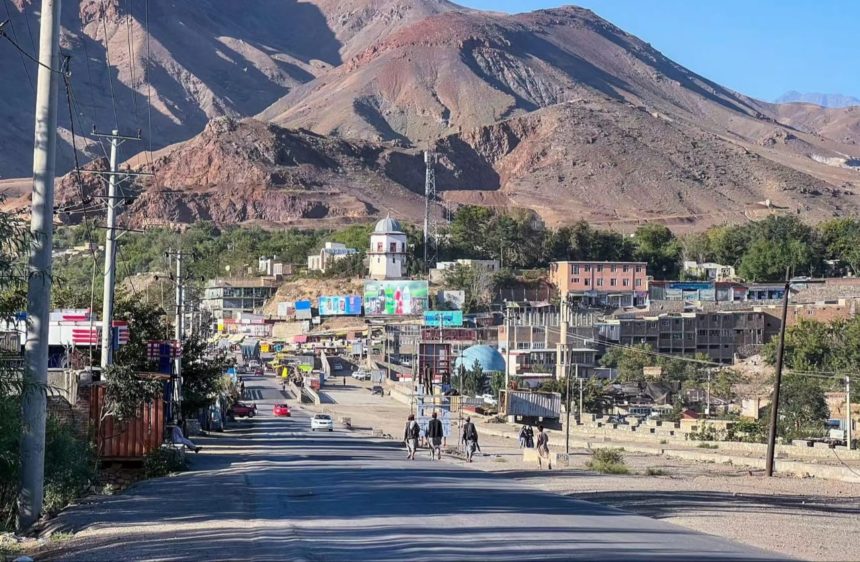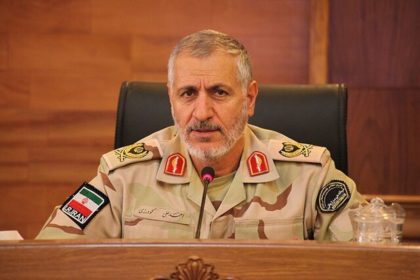The inhabitants of Parwan province, frustrated by the forceful seizure of their lands by Taliban members, took to the streets and temporarily blocked the Kabul-North highway. The residents of Golbahar district in Parwan province stated on Sunday 5th of November, that the Taliban members, mostly hailing from southern provinces of Afghanistan, have forcefully taken over the lands of the local people in this province and expelled them from their areas.
The residents of Golbahar district in Parwan province closed the Kabul-North highway, demanding that the authorities of this group prevent their members from using force in this province and further seizing their lands.
Recently, the Taliban’s Ministry of Justice announced the reclamation of lands seized by powerful individuals and stated that the group has retaken thousands of government-owned plots of land from the usurpers. The Taliban’s Ministry of Justice reported on Saturday, November 4th, the return of thousands of government-owned plots of land from those who have been accused of usurping them. However, the people of Parwan province claim that they are daily faced with severe problems and land seizures by individuals from this group, prompting them to protest.
Previously, people in provinces like Sar-e Pol, Badakhshan, and Bamyan have also protested against the seizure of their lands by Taliban members from the south in these areas. They have stated that Pashtons from southern regions of Afghanistan, who are members of the Taliban and receive military support from local authorities, forcefully seize the lands and homes of indigenous non-Pashton populations, compelling them to flee their areas.
According to the citizens of Sar-e Pol, the Taliban has set a deadline for eight villages in the center of this province, demanding that the people abandon their lands, or otherwise, face military action from this group.
The citizens of Sar-e Pol have also stated, “The Taliban has seized six thousand plots of land belonging to the indigenous people of these areas, who are Uzbeks and Tajiks.”
Recently, the Bakhtar News Agency under the control of the Taliban reported in the month of October of this year that Abdul Hakim Sharie, the Minister of Justice and head of the Prevention of Land Seizure and Recovery Commission of the Taliban group, announced the recovery of eight thousand plots of land in Jowzjan province.
In another context, previously, a number of Hazara civil activists in Kabul issued a statement regarding the seizure of Hazara lands in the Oruzgan province. They said, “During the first period of Taliban rule, this group expelled Hazaras from orchards and other areas of Oruzgan through killings and forced displacement, and they seized their lands. Now, in conjunction with Pashtons in Oruzgan, who are illegally living on Hazara lands, they carry out genocides against Hazaras in the Joynow and Shashcpar districts of Oruzgan.”
Despite this, citizens of the country and civil organizations in Kabul and northern provinces of Afghanistan have stated that the Taliban is attempting, under the guise of reclaiming seized lands, to recover specified individuals’ properties and distribute them among their own members. According to them, the Taliban’s focus on recovery is only in Kabul city and northern Afghanistan. Through this approach, they aim to distribute some of these lands to southern Pashtons and the residents of the Waziristani Tribal Areas alongside redistributing them to their own members.
Naqibullah Rostai, a university professor, stated in an interview with RASC News Agency that various factions of the Taliban are attempting to displace targeted individuals and seize properties in Kabul and the northern provinces of Afghanistan. Some of these individuals are forcefully encroaching upon the lands of indigenous people, while others claim to prevent land theft and redistribute government and public lands among their own members. Additionally, there are those who receive land under the pretext of being migrants in these areas.
Professor Rostai posed a question to the Taliban and the people, asking why the Taliban haven’t initiated land seizure in the southern and predominantly Pashton provinces, and why they haven’t rid these areas of the presence of Pashton usurpers. Furthermore, he questioned why the Taliban does not distribute land to migrants in the southern provinces, which possess vast plains.
The southern faction of the Taliban, utilizing their military power and authority, has resorted to forcibly seizing lands from people in Parwan province. Meanwhile, in the northern provinces, they have relocated a number of Waziristani migrants and distributed land to them, This process is still ongoing.






